- Home
- Sidney Sheldon
The Other Side of Me Page 2
The Other Side of Me Read online
Page 2
Chapter 2
I was born in Chicago, on a kitchen table that I made with my own hands. At least, my mother, Natalie, insisted it was so. Natalie was my North Star, my comforter, my protector. I was her first child and she never got over the miracle of birth. She could not talk about me without the aid of a thesaurus. I was brilliant, talented, handsome, and witty - and that was before I was six months old.
I never addressed my parents as "mother" and "father. " They preferred that I called them "Natalie" and "Otto," possibly because it made them feel younger.
Natalie Marcus was born in Slavitka, Russia, near Odessa, during the reign of the czars. When she was ten years old, she escaped a Russian pogrom against Jews, and was brought to America by her mother, Anna.
Natalie was a beauty. She was five foot five tall, with soft brown hair, intelligent gray eyes, and lovely features. She had the soul of a romantic and a rich inner life. She had no formal education, but she had taught herself to read. She loved classical music and books. Her dream was to marry a prince and travel around the world.
Her prince turned out to be Otto Schechtel, a Chicago street fighter who had dropped out of school after the sixth grade. Otto was handsome and charming, and it was easy to see why Natalie had been attracted to him. They were both dreamers, but they had different dreams. Natalie dreamed of a romantic world, with castles in Spain and moonlit gondola rides in Venice, while Otto's fantasies consisted of impractical get-rich-quick schemes. Someone said that all it took to be a successful writer was paper and a pen and a dysfunctional family. I was raised by two such families.
In this corner I would like to present the Marcus clan: two brothers, Sam and Al, and three sisters, Pauline, Natalie, and Fran.
And in the opposite corner, we have the Schechtels, five sisters and two brothers: Harry and Otto, and Rose, Bess, Emma, Mildred, and Tillie.
The Schechtels were extroverts, informal and street-smart. The Marcuses were introverted and reserved. The two families were not only dissimilar; they had absolutely nothing in common. And so, fate decided to amuse itself.
Harry Schechtel married Pauline Marcus. Otto Schechtel married Natalie Marcus. Tillie Schechtel married Al Marcus. And if that were not enough, Sam Marcus married Pauline's best friend. It was a marital feeding frenzy.
Otto's older brother, Harry, was the most formidable member of the Schechtel clan. He was five foot ten, muscular and powerful, with a commanding personality. If we had been Italian, he would have been the consigliere. He was the one that Otto and the others went to for advice. Harry and Pauline had four young boys - Seymour, Eddie, Howard, and Steve. Seymour was only six months older than I, but he always seemed older than his age.
In the Marcus family, Al was the charmer, good-looking and amusing, the family bon vivant. He liked to gamble and flirt. Sam Marcus was the solemn elder statesman who disapproved of the Schechtels' lifestyle. Sam's business was running checkroom concessions in various Chicago hotels.
Sometimes when my uncles got together, they would go into a corner and talk about a mysterious thing called sex. It sounded wonderful. I prayed that it wouldn't go away before I grew up.
Otto was a spendthrift who enjoyed throwing money around, whether he had it or not. He would often invite a dozen guests to an expensive restaurant, and when the bill came, borrow the money from one of them to pay the tab.
Natalie could not stand borrowing or owing money. She had a strong sense of responsibility. As I grew older, I began to realize how totally unsuited they were for each other. My mother was miserable, married to a man she had no respect for, living an inner life that he could not understand. My father had married a fairytale princess, only to find himself bewildered when the honeymoon ended.
They argued constantly, but these were not normal arguments; they were bitter and vicious. They found each other's weak points and tore at them. The arguing became so savage that I would run out of the house to the public library, where I escaped to the peaceful and serene worlds of the Hardy Boys and the Tom Swift books.
One day when I got home from school, Otto and Natalie were screaming obscenities at each other. I decided I couldn't stand it any longer. I needed help. I went to my Aunt Pauline, Natalie's sister. She was a sweet, loving dumpling of a woman, pragmatic and intelligent.
When I arrived, Pauline took one look at me and said, "What's the matter?"
I was in tears. "It's Nat and Otto. They fight all the time. I don't know what to do. "
Pauline frowned. "They're fighting in front of you?"
I nodded.
"All right. I'll tell you what you do. They both love you, Sidney, and they don't want to hurt you, so the next time they start to fight, you go up to them and tell them that you don't want them to ever fight in front of you again. Will you do that?"
I nodded. "Yes. "
Aunt Pauline's advice worked.
Natalie and Otto were in the middle of a shouting match when I walked up to them and said, "Don't do this to me. Please don't fight in front of me. "
They were both immediately contrite. Natalie said, "Of course. You're right, darling. It won't happen again. "
And Otto said, "I'm sorry, Sidney. We have no right to put our problems on you. "
After that, the arguments continued, but at least they were muffled by the bedroom walls.
We were constantly on the move from city to city, with Otto looking for work. When someone would ask me what my father did for a living, my answer always depended on where we were. In Texas, he worked in a jewelry store; in Chicago, it was a clothing store; in Arizona, it was a depleted silver mine; in Los Angeles, he sold siding.
Twice a year, Otto would take me shopping for clothes. The "shop" was a truck parked in an alley, filled with beautiful suits. They were so new that they still had their price tags on them and they were remarkably inexpensive.
In 1925, my brother, Richard, was born. I was eight years old. We were living in Gary, Indiana, at that time, and I remember how thrilled I was to have a brother, an ally against the dark forces of my life. It was one of the most exciting events of my life. I had big plans for us, and I was looking forward to all the things we were going to do together as he got older. Meanwhile, I raced him around Gary in his buggy.
During the Depression, our financial situation was something out of Alice in Wonderland. Otto would be away, working on one of his fantasy mega-deals, while Natalie, Richard, and I lived in a dreary, cramped apartment. Suddenly Otto would appear and announce that he had just made a deal that paid him a thousand dollars a week. Before we knew it, we would be living in a grand penthouse in another city. It seemed like a dream.
It always turned out to be a dream, because a few months later, Otto's deal would have vanished and we would be back living in a little apartment again, in a different city.
I felt like a displaced person. If we had had a family crest, it would have been a picture of a moving van. Before I was seventeen, I had lived in eight cities and attended eight grammar schools and three high schools. I was always the new kid on the block - an outsider.
Otto was a great salesman and when I started at a new school, in another city, he would always take me to see the principal on the first day, and almost invariably he would talk him into promoting me a grade. The result of that was that I was always the youngest boy in the class, creating another barrier to making friends. Consequently I became shy, pretending that I enjoyed being a loner. It was a very disruptive life. Each time I would start to make friends, it was time to say goodbye.
Where the money came from I don't know, but Natalie bought a little secondhand spinet piano, and she insisted I start taking piano lessons.
"Why?" Otto asked.
"You'll see," Natalie said. "Sidney even has the hands of a musician. "
I enjoyed the lessons, but they ended a few months later, when we moved to Detroit.
Otto's proudest boast was that
he never read a book in his life. It was Natalie who instilled the love of reading in me. Otto was concerned because I enjoyed sitting at home, reading books I took from the public library, when I could have been out on the street, playing baseball.
"You're going to ruin your eyes," he would keep saying. "Why can't you be like your cousin Seymour? He plays football with the boys. "
My Uncle Harry went further. I overheard him saying to my father, "Sidney reads too much. He's going to come to a bad end. "
When I was ten years old, I made matters worse by starting to write. There was a poetry contest in Wee Wisdom, a children's magazine. I wrote a poem and asked Otto to send it to the magazine to enter it in the contest.
The fact that I was writing made Otto nervous. The fact that I was writing poetry made him very nervous. I later learned that because he did not want to be embarrassed when the magazine rejected my poem, he took my name off it, substituted my Uncle Al's name, and sent it in to the magazine.
Two weeks later, Otto was having lunch with Al.
"The damnedest thing happened, Otto. Why would Wee Wisdom magazine send me a check for five dollars?"
Thus, my first professional writing was published under the name of Al Marcus.
One day, my mother came running into the apartment, breathless. She hugged me and exclaimed, "Sidney, I've just come from Bea Factor. She says you're going to be world-famous! Isn't that wonderful?"
Bea Factor was a friend who was reputed to be a psychic and there were many acquaintances of hers who verified it.
To me, it was wonderful that my mother believed her.
In the twenties and thirties, Chicago was a city of noisy elevated trains, horse-drawn ice wagons, crowded beaches, strip clubs, the smell of the stockyards, and the St. Valentine's Day Massacre, where seven mobsters were lined up against a wall in a garage and machine-gunned down.
The school system was run like the city - tough and aggressive. Instead of "show and tell," it was "throw and tell. " And it wasn't the students who were throwing things; it was the teachers. One morning, when I was in third grade, a teacher was displeased by something a pupil said. She picked up one of the heavy glass inkwells that were set on each desk and hurled it across the room at the student. If it had hit him in the head, it would have killed him. I was too terrified to return to school that afternoon.
My favorite subject in school was English. Part of the class assignment was taking turns reading aloud from a book called the Elgin Reader that contained short stories. We would turn to a story by Poe or O'Henry or Tarkington, and I would dream that one day the teacher would say, "Turn to page twenty in your reader," and lo and behold, there would be a story written by me. Where that dream came from, I do not know. Perhaps it was an atavistic throwback to some long-gone ancestor.
The tenth floor of the Sovereign Hotel was the neighborhood's ole swimmin' hole. Whenever possible, I would take Richard there to play in the pool. He was five years old.
On this particular day, I deposited him in the shallow end and I swam to the deep end. While I was talking to some people, Richard got out of the pool, looking for me. He came to the deep end of the pool, slipped and fell in. He went straight to the bottom. I saw what had happened, dove down, and pulled him up.
No more ole swimmin' hole for us.
When I was twelve years old, in the seventh grade at Marshall Field grammar school, in Chicago, I was in an English class where we were allowed to work on our own projects. I decided to write a play about a detective investigating a murder. When it was finished, I turned it in to my teacher. She read the play, called me to her desk, and said, "I think this is really good, Sidney. Would you like to stage it?"
Would I! "Yes, ma'am. "
"I'll arrange for you to put it on in the main auditorium. "
And suddenly I remembered Natalie's excitement about Bea Factor's prediction. Sidney is going to be world-famous.
I was filled with excitement. This was the beginning. When the class heard the news, everyone wanted to be cast in the play. I decided that not only would I produce it and direct it, but I would also star in it. I had never directed before, of course, but I knew exactly what I wanted.
I began casting. I was allowed to rehearse after school in the huge auditorium and soon my play was the talk of the school. I was given all the props I asked for: couches, chairs, tables, a telephone . . .
It was one of the happiest times of my life. I knew without question that this was the beginning of a wonderful career. If I could write a successful play at my age, there was no limit to how far I could go. I would have plays on Broadway with my name in lights.
I held a final dress rehearsal with my classmates who had been cast by me, and the rehearsal went perfectly.
I went to my teacher. "I'm ready," I said. "When would you like me to put the play on?"
She was beaming at me. "Why don't we do it tomorrow?"
I got no sleep that night. I felt that my whole future depended on the success of the play. Lying in bed, I went over it scene by scene, looking for flaws. I could find none. The dialogue was excellent, the plot moved swiftly, and the play had an unexpected twist at the end. Everyone was going to love it.
The next morning, when I arrived at school, my teacher had a surprise for me.
"I've arranged to have all the English classes dismissed so that they can come down to the auditorium to see your play. "
I could not believe it. This was going to be a far bigger triumph than I had imagined.
At ten o'clock in the morning, the huge auditorium was filled. Not only were all the students in the English classes there, but the principal and teachers who had heard about my play were present, eager to see the work of the child prodigy.
In the midst of all this excitement, I was calm. Very calm. It seemed only natural that this was happening to me at such an early age. You're going to be world-famous.
It was show time. The conversations in the auditorium began to die down and the theater became hushed. The set consisted of a simple living room where a boy and girl were playing a husband and wife whose friend had been murdered. They were seated next to each other on a sofa.
I was playing the detective investigating the murder. I stood in the wings, ready to make my entrance. My cue was the boy on stage looking at his watch and saying, "The inspector should be here soon. " But instead of "soon," he started to say "any minute," and he caught himself and tried to change "minute" to "soon. " What came out was, "The inspector should be here any minsoon. " He quickly corrected himself, but it was too late. Minsoon? That was the funniest sound I had ever heard. It was so funny, I had to laugh. And I could not stop. The more I thought about it, the louder I laughed.
The boy and girl on the stage were staring at me in the wings, waiting for me to make my entrance. I could not move because I was laughing too hard. I was helpless. The laughing took over completely and I became more and more hysterical.
The play had come to a standstill before it started.
After what seemed an eternity, from the auditorium I heard my teacher's voice calling, "Sidney, come out here. "
I forced myself to leave the shelter of the wings and stumble out to the center of the stage. My teacher was in the middle of the auditorium, on her feet, listening to my frenzied outburst. "Stop it," she commanded.
But how could I? Minsoon?
The audience began getting up and drifting out of the auditorium and I watched them go, pretending that I was laughing because I wanted to, pretending that what was happening was not important.
Pretending that I did not want to die.

 Windmills of the Gods
Windmills of the Gods After the Darkness
After the Darkness The Best Laid Plans
The Best Laid Plans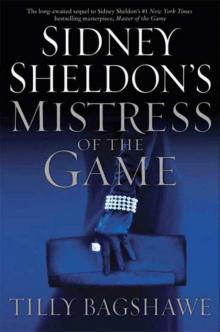 Mistress of the Game
Mistress of the Game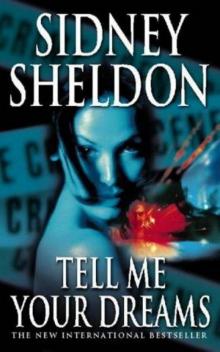 Tell Me Your Dreams
Tell Me Your Dreams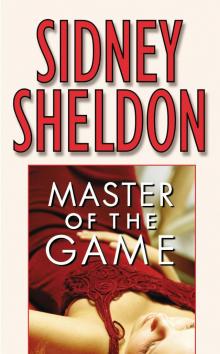 Master of the Game
Master of the Game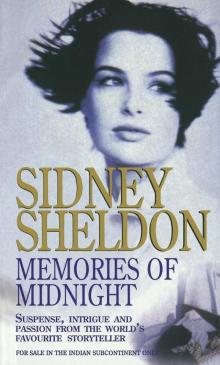 Memories of Midnight
Memories of Midnight Are You Afraid of the Dark?
Are You Afraid of the Dark? Nothing Lasts Forever
Nothing Lasts Forever Rage of Angels
Rage of Angels The Sky Is Falling
The Sky Is Falling The Sands of Time
The Sands of Time Morning, Noon and Night
Morning, Noon and Night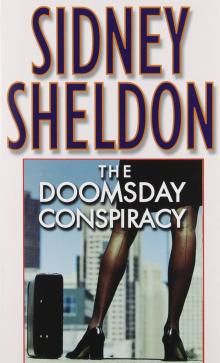 The Doomsday Conspiracy
The Doomsday Conspiracy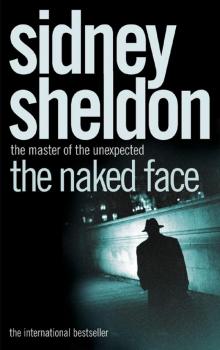 The Naked Face
The Naked Face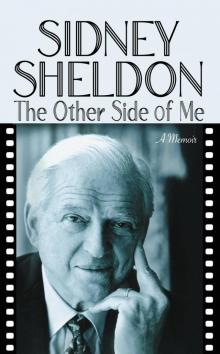 The Other Side of Me
The Other Side of Me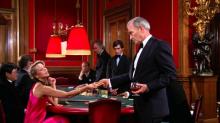 Bloodline
Bloodline The Stars Shine Down
The Stars Shine Down The Other Side of Midnight
The Other Side of Midnight A Stranger in the Mirror
A Stranger in the Mirror Sidney Sheldon's Angel of the Dark
Sidney Sheldon's Angel of the Dark Sidney Sheldon's the Tides of Memory
Sidney Sheldon's the Tides of Memory The Phoenix
The Phoenix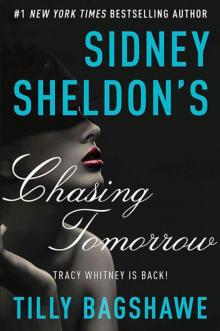 Sidney Sheldon's Chasing Tomorrow (Tracy Whitney)
Sidney Sheldon's Chasing Tomorrow (Tracy Whitney)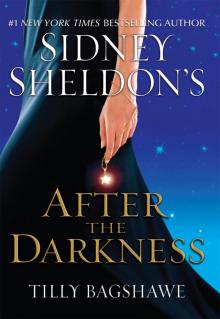 Sidney Sheldon's After the Darkness
Sidney Sheldon's After the Darkness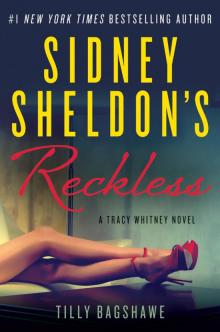 Sidney Sheldon's Reckless
Sidney Sheldon's Reckless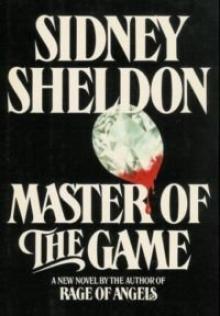 Master of the Game motg-1
Master of the Game motg-1 Sidney Sheldon's the Silent Widow
Sidney Sheldon's the Silent Widow Morning, Noon & Night
Morning, Noon & Night